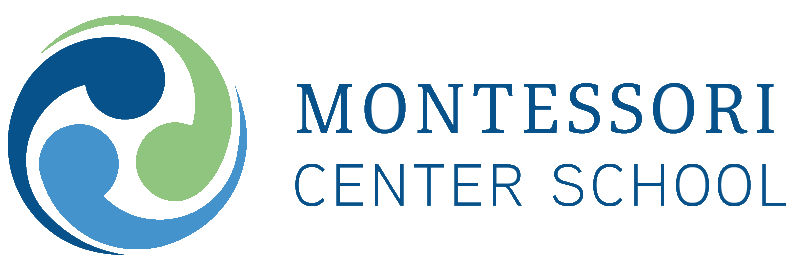Why Choose Montessori?
How does a parent prepare their child for an unpredictable future? Don’t we all just want to give them every possible advantage?
How do we define success in our children’s lives? Is it about being able to provide for oneself or is it finding joy in the work we do? Is it about contributing to our communities or perhaps continuing to learn throughout our lives? Couldn’t it (shouldn’t it) be a little bit of all of those things?
Goals
We think Montessori is one beautiful way to work toward all of these goals, and we are prepared to make some bold statements:
- Montessori gives children a strong understanding of basic math and language skills, starting earlier than most methods and using materials that support their development and methods that correlate with current research findings.
- Building a sense of independence and confidence is a major component of what we do. We know that children of all ages are fully capable of doing more for themselves than they are often given credit for. We have learned to sit back, observe, and assist only when necessary. This allows children to grow in incredible ways, amazing their parents (and frankly, us, too!).
- Respect for and connection to the earth is built directly into our curriculum, especially in the elementary grades. We know that around age 6, children start to think about where they fit into the bigger picture. We teach them about the universe, our solar system, the beauty of our planet, and the variety of life on it, just at a time when they are seeking those answers.
- Choice and freedom are important for all human beings. We give both to children because we believe they are capable of knowing what they need and want, and the more practice they have the better they will get at making decisions when we are not there to support them.
- We value teaching responsibility and time management skills. This goes hand in hand with focus and attentiveness. The ability to make choices about one’s learning must be balanced with accountability; as the children in our classrooms get older, they know there are certain expectations. For example, they may be able to choose the order of their work, but they know that they have to do grammar at some point during a specific time period, even if it’s not their favorite subject.
- Rather than drilling arbitrary facts into children and forcing them to memorize information that may not serve them in the future, we take a different approach. All children are exposed to a wide variety of basic scientific, geographical, and historical information, and are given extensive opportunities to more deeply explore the topics that they find fascinating.
Graduates of Montessori schools go on to be successful in other settings, whether they go on to attend other private schools or their local public schools. They tend to view the world a little more creatively than the rest of us, and their contributions are often felt throughout society. There are many notable public figures that credit their early Montessori education to the successes they experienced later in life. To learn more about some of these people, take a look at this article.
Research
Montessori-specific research is a fairly new field, but the initial results in recent years are fascinating. We will highlight a few of the studies below.
One study conducted in Hartford, Connecticut, took a look at preschool students in a public Montessori magnet school. Federal magnet grants are awarded to public schools that commit to special, high-quality educational programming (in this case, Montessori) in an attempt to create a socioeconomically diverse school community within an urban setting. In the study, two groups of preschool-aged children were observed over time: 70 children in the Montessori setting and 71 who were in other settings. While the children tested similarly at the onset of the study, eventually the Montessori children outperformed the others academically, as well as notable increases in their enjoyment of work, social understanding, mastery orientation, and executive function. Subgroups within the study showed some other interesting findings that suggest Montessori education might help close the gaps on certain factors that typically hinder children’s success (such as income and executive functioning).
Science Magazine featured another research study , which found that five-year-old children who completed the three-year cycle in the Montessori preschool program scored higher on both academic and behavioral tests than the control group. The study also found that 12-year-old Montessori students wrote essays that were more creative and sophisticated in structure and showed a more highly developed sense of community and social skills than students in other programs.
A Milwaukee study concluded that a Montessori education has long-lasting positive benefits for children. The study also determined that when Montessori-educated children eventually transitioned into more traditional educational settings they were successful and the transition was positive.
Community
Montessori schools are also something unexpected: they provide a community for more than just the children. Parents, educators, students, and local community members gather together in support of common goals. They work together, socialize together, and find ways to solve problems together. In our society today, many people have lost the sense of community that is so important to our well being; Montessori schools serve an important function of not just educating children, but giving like-minded adults a way to connect and form meaningful relationships.
The post Why Choose Montessori? appeared first on Montessori Center School.
Programs
Montessori Center School admits students of any race, color, religion, national and ethnic origin, gender identity, and sexual orientation to all rights, privileges, programs and activities general recorded or made available to students at the School. It does not discriminate on the basis of race, color, religion, national and ethnic origin, gender identity or sexual orientation in the administration of its educational programs, admission and tuition assistance policies, and athletic or other school-administered programs. Non-Profit Education Organization, License No. 426205239




